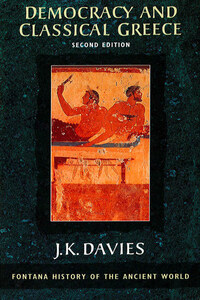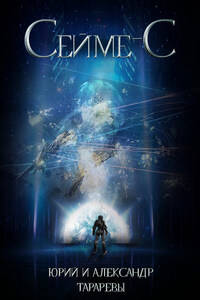J. K. DAVIES
DEMOCRACY AND CLASSICAL GREECE
Harper Press
An Imprint of HarperCollinsPublishers, 1 London Bridge Street, London SE1 9GF
www.harpercollins.co.uk
First published by Fontana Press 1993
Copyright© J. K. Davies 1978, 1993
J. K. Davies asserts the moral right to be identified as the author of this work
All rights reserved under International and Pan-American Copyright Conventions. By payment of the required fees, you have been granted the nonexclusive, nontransferable right to access and read the text of this e-book on-screen. No part of this text may be reproduced, transmitted, downloaded, decompiled, reverse engineered, or stored in or introduced into any information storage and retrieval system, in any form or by any means, whether electronic or mechanical, now known or hereinafter invented, without the express written permission of HarperCollins e-books.
HarperCollinsPublishers has made every reasonable effort to ensure that any picture content and written content in this ebook has been included or removed in accordance with the contractual and technological constraints in operation at the time of publication.
Source ISBN 9780006862512
Ebook Edition © APRIL 2015 ISBN 9780007381333
Version 2015-04-07
NO JUSTIFICATION is needed for a new history of the ancient world; modern scholarship and new discoveries have changed our picture in important ways, and it is time for the results to be made available to the general reader. But the Fontana History of the Ancient World attempts not only to present an up-to-date account. In the study of the distant past, the chief difficulties are the comparative lack of evidence and the special problems of interpreting it; this in turn makes it both possible and desirable for the more important evidence to be presented to the reader and discussed, so that he may see for himself the methods used in reconstructing the past, and judge for himself their success.
The series aims, therefore, to give an outline account of each period that it deals with and, at the same time, to present as much as possible of the evidence for that account. Selected documents with discussions of them are integrated into the narrative, and often form the basis of it; when interpretations are controversial the arguments are presented to the reader. In addition, each volume has a general survey of the types of evidence available for the period and ends with detailed suggestions for further reading. The series will, it is hoped, equip the reader to follow up his own interests and enthusiasms, having gained some understanding of the limits within which the historian must work.
Oswyn Murray
Fellow and Tutor in Ancient History,
Balliol College, Oxford
General Editor
THE TRADITIONAL spelling of Greek names follows Latin rather than Greek practice; recently some scholars and translators have tried with more or less consistency to render Greek names according to their original spelling. In the interests of clarity we have adopted a compromise: generally geographical places and names of extant authors appear in their conventional Latinized form, other names in Greek spelling; but where this would lead to confusion we have not hesitated to be inconsistent. Apart from variations in the endings of names, the main equivalences are that Latin C represents Greek K, and in diphthongs Latin Å represents Greek ai. Where the difference in spelling is substantial, both forms are given in the index.
TWENTY-FIVE YEARS ago Arnaldo Momigliano wrote: âAll students of ancient history know in their heart that Greek history is passing through a crisis.â The observation still holds. Some difficulties are technical â those of establishing a chronology, restoring the text of documents written on stones now broken, or integrating events which take place in different areas. Others have to do with sources, such as the challenges to emancipate ourselves from politico-military history and from the leisure-class bias of our literary sources, or to link archaeological finds with the record from narrative sources. Most fundamental of all is the problem of deciding what counts as a satisfactory interpretative understanding of events and social structures. In this book I have tried to illustrate such problems and to meet such challenges, while not losing sight of the plain unrolling of events which for most of us most of the time counts as âhistoryâ. I am scarcely the best judge of whether that balance has been kept.








